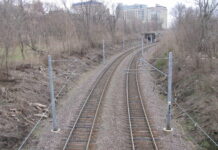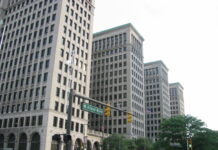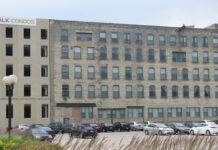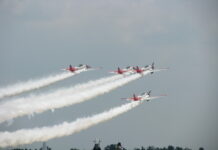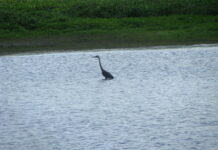Photo credit: DiasporaEngager (www.DiasporaEngager.com).
In 2017, I wrote this:
Anti-corruption activist Alexei Navalny posted a report on YouTube detailing the corruption of Prime Minister Dmitry Medvedev. After more than 13 million views in roughly three weeks, people, including a large number of teenagers, answered Navalny’s call for public protest. They flooded the streets of 95 Russian cities, as well as London, Prague, Basel, and Bonn. Many carried rubber ducks — or real ducks — referring to reports of a luxury duck farm on one of Medvedev’s properties.
Depending on the source, 7,000-8,000 (Russia’s Interior Ministry) or 25,000-30,000 (Navalny’s Anti-Corruption Foundation) people turned out in Moscow, and hundreds — or thousands — were arrested.
Navalny is now in jail.
Navalny is now dead.
Life has never been easy for critics of Vladimir Putin. There are 30 names in this review, which is not comprehensive. They died in different (and odd) ways and different places, but all were known to have fallen out of favor with the boss. Think of them and the circumstances of their lives as well as their deaths.
Just last week, Russian pilot Maxim Kuzminov was found in a parking lot in Kiev with five bullets in him. In August, he had defected to Ukraine with a Russian Mi-8 helicopter.
Also in August, Wagner chief Yevgeny Prigozhin died when his airplane was struck by a missile, and General Gennady Lopyrev, once a Putin confidant, died in a military jail, where he had been sent in 2017. Just before his parole, he became ill — gasping for breath — and was told by doctors he had previously undiagnosed leukemia; then he died. Col-Gen Gennady Zhidko led the invasion of Ukraine in 2022 but was removed in disgrace in October 2022, and essentially disappeared. His death was announced in August.
Dmitri Pavochka, former manager of Roscosmos, burned to death after falling asleep with a lit cigarette. Magomed Abdulaev, Chairman of the Government of the Republic of Dagestan, was victim of a hit and run. Alexander Nikolayev of Rosatom and a former diplomat, was beaten to death.
Marina Yankina, head of the financial support department of the Ministry of Defense for the Western Military district, fell out a 16th story window. Windows were problematic for:
- Federal Judge Artyom Bartenev
- Kristina Baikova, Vice president of Loko-Bank
- Lukoil chairman Ravil Manganov
- Pavel Antonov, richest deputy of the Russian Duma — and Putin critic
- Semyon Korobeinikov — a clothing salesman — who “lost his footing” on a balcony. Later it emerged that he had been a co-conspirator in a bank fraud case that might have required him to testify against a mob boss friend of Putin.
- Nicolai Gorokhov (2017), a witness for the US government in the investigation of Serge Magnitsky’s death, fell 50 feet out a window “while installing a hot tub.” “The balcony fell off,” the Russian government said.
- Dan Rapoport, a Latvian-born US citizen, fell out of the window of a luxury apartment building in Washington, D.C. [Rapoport was the second Putin critic to die in Washington. Mikhail Y. Lesin, 57, who helped create the Kremlin’s global English-language Russia Today television network, was found dead in a hotel in 2016.]
It wasn’t only windows. In 2022, Ivan Pechorin, 39, Putin’s hand-selected managing director of the Far East and Arctic Development Corporation (FEADC), fell off his yacht. [Andrei Fomin, Prosecutor of Chuvashia, drowned in the same area almost a year later.] Igor Nosov, CEO of FEADC died, reportedly, of a stroke.
The death of Igor Shkurko, deputy general director of Russian energy company Yakutskenergo in pretrial detention, accused of bribery, and that of 92-year-old Grigory Klinishov, the father of Russia’s thermonuclear bomb, were ruled suicides. As was the death of Major General (ret.) Yevgeny Lobachev, of the Federal Security Service of the Russian Federation.
The former Deputy Chairman of Novatek, was found hanged from a handrail. His wife and daughter were stabbed to death. Businessman Mikhail Watford was found dead at his home in England, while another businessman — Vladimir Bidenov — died in India after hitting his head on a railing.
No explanation was given for the death of Aleksandr Buzakov, head of Russia’s “admiralty shipyards.” Aleksey Maslov, former chief of Russian Ground Forces died “unexpectedly” in a military hospital.
There is more.
Putin critic and lawmaker Denis Voronenkov (2017), Boris Nemtsov (2015), human rights lawyer Stanislav Markelov (2009), journalists Anastasiya Baburova (2009), Natalia Estemirova (2009), Anna Politkovskaya (2005), and Paul Klebnikov (2004), and politician Sergei Yushenkov (2003) were all shot.
Human Rights lawyer Sergei Magnitsky (2009) died in police custody after being beaten and denied treatment. Yevgeny Khamaganov (2017) editor-in-chief of Asia-Russia Daily died in unexplained circumstances that resulted in a coma. Putin critic Nikolai Andrushchenko (2018) died of a severe beating — his third in a few months. He had told friends that he’d survived a previous attempt to poison him.
Britain is only barely safer. Boris Berezovsky (2013), after a falling out with Putin, left for London. He was found dead in his bath in a locked bathroom with a noose around his neck. A British coroner did not determine the cause of death. Yuri Shchekochikhin (2003) had what official reports called a “rare allergic reaction” to “something.” His family believed he had previously been poisoned and this time it killed him. Alexander Litvinenko (2006) drank radioactive tea in Britain. British coroners found nothing unusual in Alexander Perepilichny (2012) dropping dead on a jog. It might have been “bad sushi” they suggested. Later, an insurance company scientist uncovered traces of a toxic plant in his stomach.
The chilling effect of killing political dissents goes beyond the tragic loss of lives of individuals fighting for better governance or their compatriot’s freedom. It serves as strategic move to deepen the veneer of inevitability surrounding the kleptocratic rule of President Putin, both at home and abroad.
Shoshana Bryen is Senior Director of The Jewish Policy Center, where a version of this article first appeared.
Source of original article: Shoshana Bryen / Opinion – Algemeiner.com (www.algemeiner.com).
The content of this article does not necessarily reflect the views or opinion of Global Diaspora News (www.GlobalDiasporaNews.com).
To submit your press release: (https://www.GlobalDiasporaNews.com/pr).
To advertise on Global Diaspora News: (www.GlobalDiasporaNews.com/ads).
Sign up to Global Diaspora News newsletter (https://www.GlobalDiasporaNews.com/newsletter/) to start receiving updates and opportunities directly in your email inbox for free.




